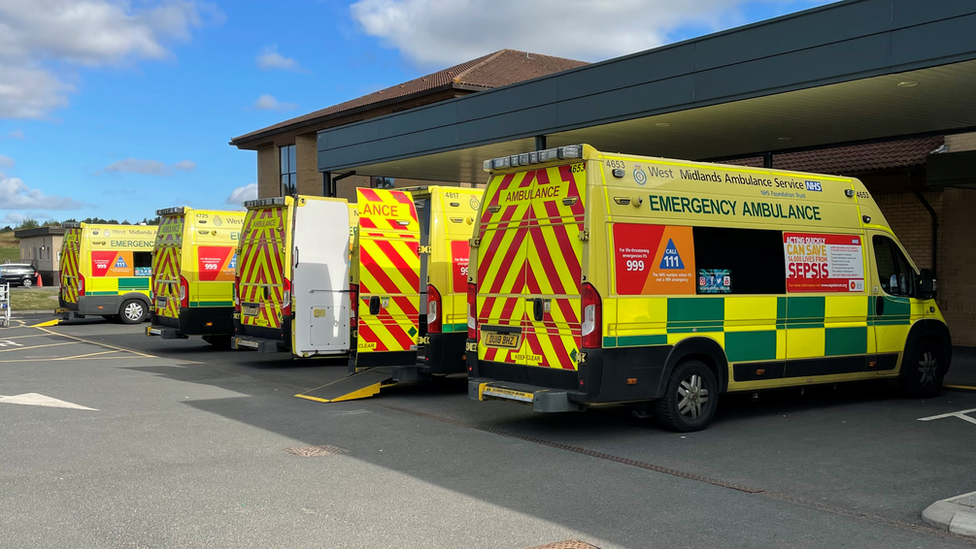Staffordshire Moorlands council demands better ambulance service
- Published
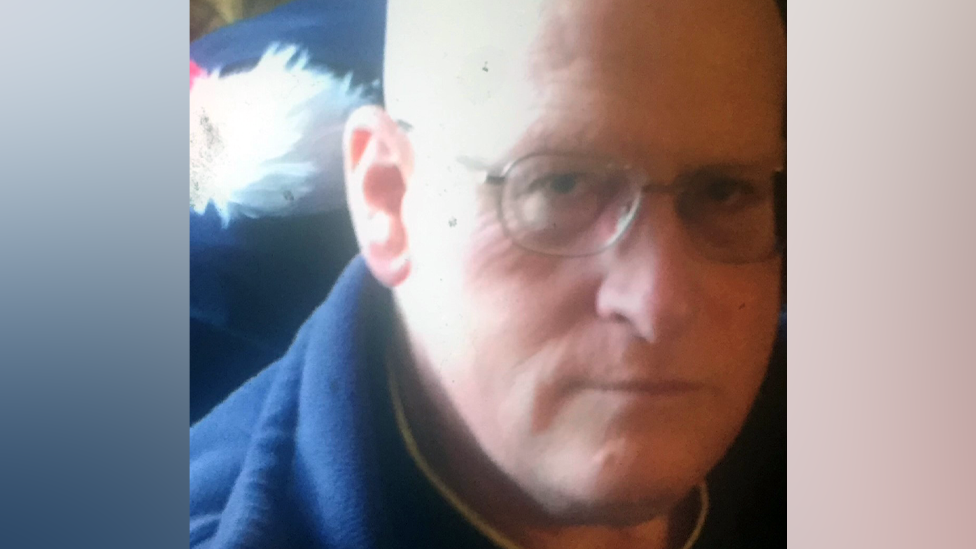
John Beardmore's niece was unable to get the code to open a defibrillator box after he went into cardiac arrest
A council has demanded to know how the ambulance service plans to improve response times in the Staffordshire Moorlands after a catalogue of delays.
It follows two deaths where 999 callers had problems obtaining access codes from West Midlands Ambulance Service (WMAS) for defibrillators.
"Staffordshire Moorlands needs a better service," said district council leader Mike Gledhill.
WMAS said all call assessors had been given more defibrillator code training.
The service also accepted its rural response times were poor, but said this was caused by handover hospital delays.
The council has written requesting specific performance data on response times in the district.
Mr Gledhill has asked for WMAS's chief executive to come and talk about the concerns which are shared across the Moorlands' political parties.
The council, which has consulted with former and current WMAS staff, believes paramedic response cars should be restored to rural areas and cited the two recent deaths in the village of Ipstones.
'Still feel guilty'
John Beardmore's family dialled 999 when the 73-year-old started having breathing problems in October 2022.
More than two hours and four 999 calls later, he went into cardiac arrest.
His niece Julie Downie ran to the village hall to get the defibrillator. She had used one before and knew it could save lives, but neither the ambulance call handler or her supervisor could find the code needed to open the box.
The ambulance arrived two hours and 13 minutes after the first call was made, by which time it was too late.
Ms Downie said everyone had expected her to be able to do something.
"I felt so guilty and I still feel guilty. My uncle John was always there for me, but when he needed help, I couldn't help him," she said.
An WMAS investigation found the call handler had intentionally closed down the defibrillator prompt on her screen and neither she nor the supervisor could retrieve the code. The investigation report said both had undergone extra training.
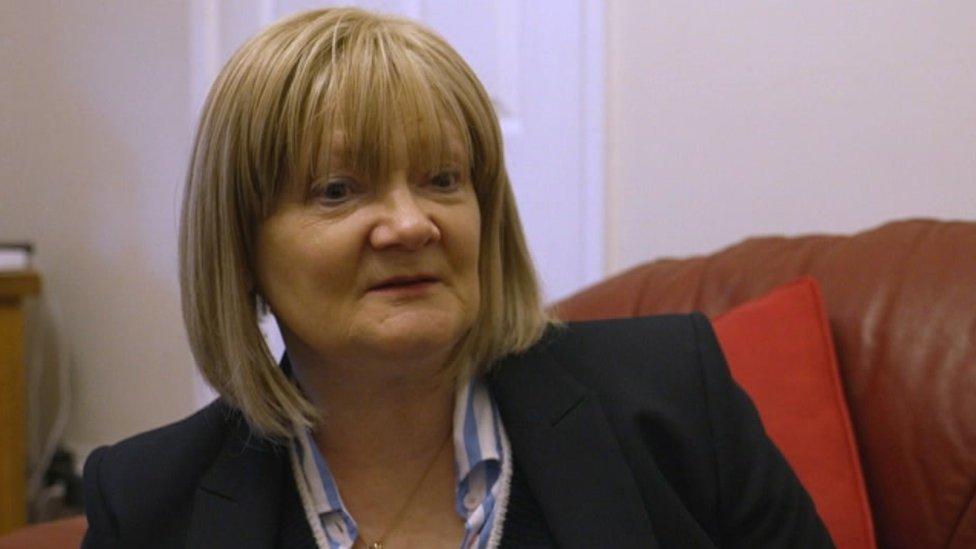
Julie Downie had used a defibrillator previously
Linda Malyon, independent chair of Ipstones Parish Council, said eight months later on 8 July, Alan Cooper died following an incident with the same defibrillator.
An ambulance service investigation found the code should have been given to the person who dialled 999 before she left to get the defibrillator. WMAS accepted there was a four-minute delay in accessing the code which was again "missing in the notes."
The service said refresher training had since been undertaken with all call assessors.
"This issue has now been rectified with a solution now implemented by our computer-aided dispatch system provider," the service said.
Meanwhile, Leslie Jackson, who also lives in Ipstones, has complained about ambulance delays.
His 91-year-old mother was twice experiencing breathing difficulties. Both times, he was asked to take her to hospital.
He said the first time he took her, but it was a struggle. After being discharged, there was a second episode and she had to wait eight hours for an ambulance.
"I feel strongly that the management has let down the people of the Staffordshire Moorlands and now we have become vulnerable," he wrote to the service.
Ms Malyon believes if there have been so many issues in one village, the problem must be widespread.
"We will fight that corner to get a better response time," she said.
Lyn Swindlehurst, the district council's chair, has written on behalf of the authority asking what plans WMAS had to address the issues.
As a retired nurse, she had been called out of a meeting to help a woman who had been lying in the rain for about two hours.
"She was soaking wet as it was teeming with rain, she was in extreme pain and very cold. We called again and were asked whether we would take professional responsibility to take her to hospital," she said.
"We stated that we were retired and no longer in the profession."
She said a week later she assisted a woman who had sustained a knee injury and was advised there would a three or four hour wait for an ambulance.
After waiting two hours, they enlisted some men to carry her to a car.
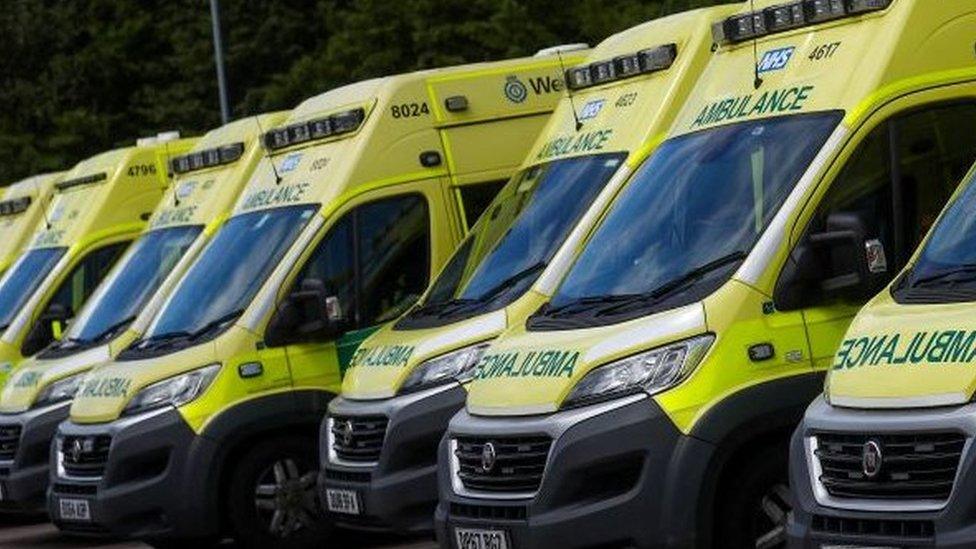
WMAS accepts response times in the Moorlands are poor, which it said was due to ambulances being stuck outside hospitals.
In January alone, WMAS said it lost 34,000 hours due to handover delays, the equivalent of more than 2,800 ambulance shifts in a month.
Prior to the pandemic, the trust said it had exceeded its response times for many years.
It said the use of response cars was inherently inefficient and was why every ambulance service in the country was reducing their use.
Reviews by the National Audit Office and Lord Carter showed very clearly sending an ambulance was inherently more effective "as the one vehicle can deal with every situation", such as treating and discharging the patient at the scene or transporting them such as to A&E or a care setting.
The service accepted rural areas were particularly impacted by handover delays, which led to ambulances often having to travel from Royal Stoke Hospital.
It added: "We continue to work with our partners to find new ways to reduce the delays even further, so that our crews can respond more quickly and save more lives."

Follow BBC West Midlands on Facebook, external, X, external and Instagram, external. Send your story ideas to: newsonline.westmidlands@bbc.co.uk
- Published13 February 2024
- Published17 December 2023
- Published13 November 2023
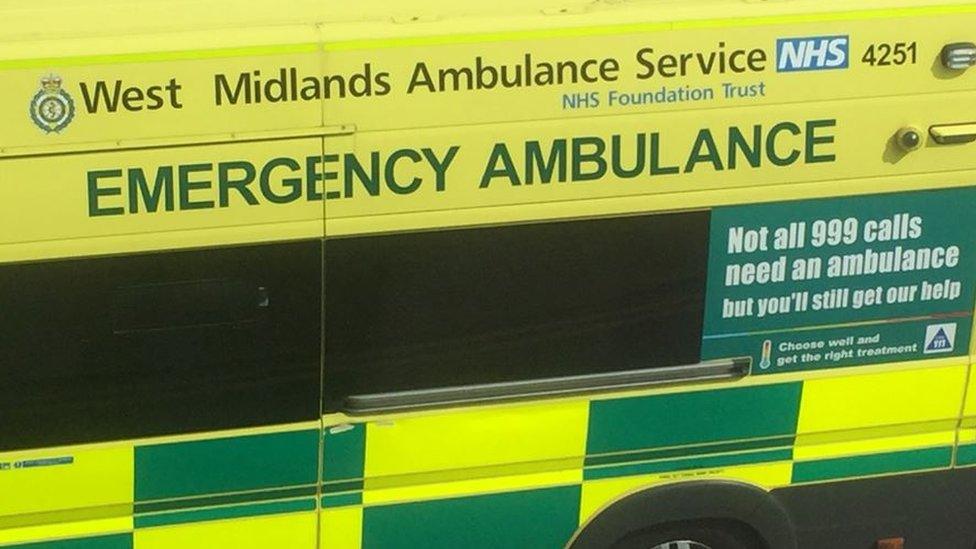
- Published4 January 2023
